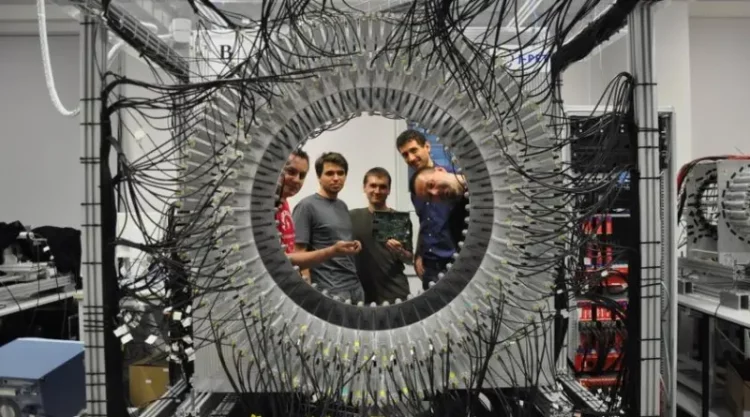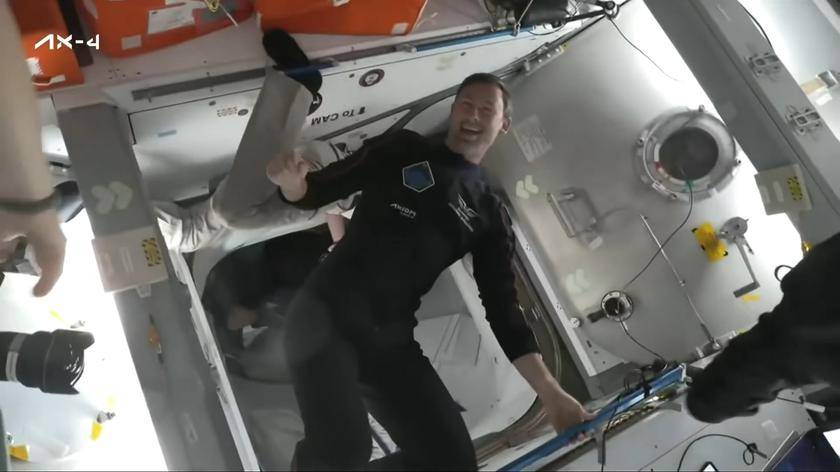In a groundbreaking achievement, Polish researchers from the Jagiellonian University in Krakow and the Medical University of Warsaw have developed an innovative approach to cancer diagnostics that could transform how tumors, especially brain cancers, are detected and studied. By employing a unique imaging technique involving “positronium lifetime” with the J-PET tomography scanner, this technology aims to enhance diagnostic accuracy and potentially phase out invasive biopsy procedures.
- More News from Poland on our Homepage.
- Sign up to our Newsletter
A Revolutionary Approach: J-PET Tomography
At the heart of this innovation is the J-PET (Jagiellonian Positron Emission Tomography) scanner, an advanced PET imaging device designed by Professor Paweł Moskal’s team at Jagiellonian University. Unlike conventional PET scans, which focus solely on the distribution of radioactive tracers, the J-PET system introduces an additional measurement of the positronium atom’s lifetime. Positronium, an exotic atom composed of an electron and a positron, plays a key role in detecting cancerous tissue. Research has shown that positronium atoms have a shorter lifespan in cancerous tissues than in healthy ones, a phenomenon that J-PET measures with unprecedented precision.
Professor Ewa Stępień, a collaborator on the project, highlighted this feature as a major breakthrough, explaining that standard imaging devices have been unable to measure positronium lifetimes, making J-PET uniquely capable of providing a more nuanced view of cancerous tissue. This capability is particularly promising for gliomas, a type of aggressive brain tumor that has historically been challenging to diagnose and monitor.
You may also be interested in
Sławosz Uznański-Wiśniewski Becomes First Pole Aboard International Space Station
Sławosz Uznański-Wiśniewski made history Thursday as the first Polish astronaut to board the International Space Station (ISS), marking a milestone…
Germany Unveils “Temporary” Memorial Honoring Polish Victims of Nazi Occupation
In a solemn ceremony near the German Chancellery and Bundestag, Berlin on Monday unveiled a temporary memorial honoring millions of…
The J-PET technology recently underwent clinical testing on glioma patients at the Medical University of Warsaw, under the guidance of Professor Leszek Królicki and Professor Jolanta Kunikowska. Initial results have been encouraging, demonstrating J-PET’s potential to deliver highly detailed three-dimensional images of brain tumors, helping physicians to identify malignant tissue without invasive biopsies. While the device’s current version focuses on brain imaging, Professor Moskal’s team is already working on a full-body version anticipated to be available by 2028. This next-generation J-PET will further expand diagnostic possibilities, including tracking drug metabolism and examining quantum photon entanglement for more sophisticated imaging.
Increased Accessibility and Efficiency
Beyond diagnostic precision, J-PET brings practical advantages in cost, weight, and accessibility over traditional PET scanners, making it more feasible for widespread clinical use. Testing conducted at the University Hospital in Krakow confirmed that J-PET is not only effective but also significantly less expensive and lighter than conventional PET machines, positioning it as a versatile option for medical facilities.
Cancer remains a significant health issue in Poland, where 100,000 people die from cancer annually, and over 1.17 million individuals are affected by the disease. The potential for J-PET to replace invasive biopsies with virtual ones, coupled with its affordability, holds promise for improving cancer diagnostics and care accessibility. While the technology will require more testing and refinement before it reaches broader clinical application, its development marks a significant step forward in non-invasive cancer diagnostics, potentially paving the way for better patient outcomes worldwide.
If successful in its future applications, J-PET could set a new global standard for cancer diagnostics, reducing the need for invasive procedures and making advanced diagnostics more accessible to hospitals and clinics worldwide.
Support Poland 24
Poland 24 is an independent publication dedicated to providing accurate, insightful, and timely news from Poland. In an era where reliable journalism is more important than ever, we take pride in delivering content that keeps you informed about the latest developments in politics, culture, and society in Poland. However, as an independent outlet, we rely on the support of our readers to continue operating without the influence of corporate sponsors or political agendas. Your donations are crucial to help us maintain the quality of our reporting, covering both major headlines and the stories that often go untold by mainstream media.
By supporting Poland 24, you are not only helping us sustain our website, but you are also contributing to the creation of more diverse, in-depth content. Every donation, big or small, allows us to invest in better resources, hire experienced journalists, and cover a wider range of topics with the detail and attention they deserve. If you value independent journalism and want to see more high-quality content about Poland, please consider donating today. Your support truly makes a difference in our ability to continue bringing important news to the public.




















